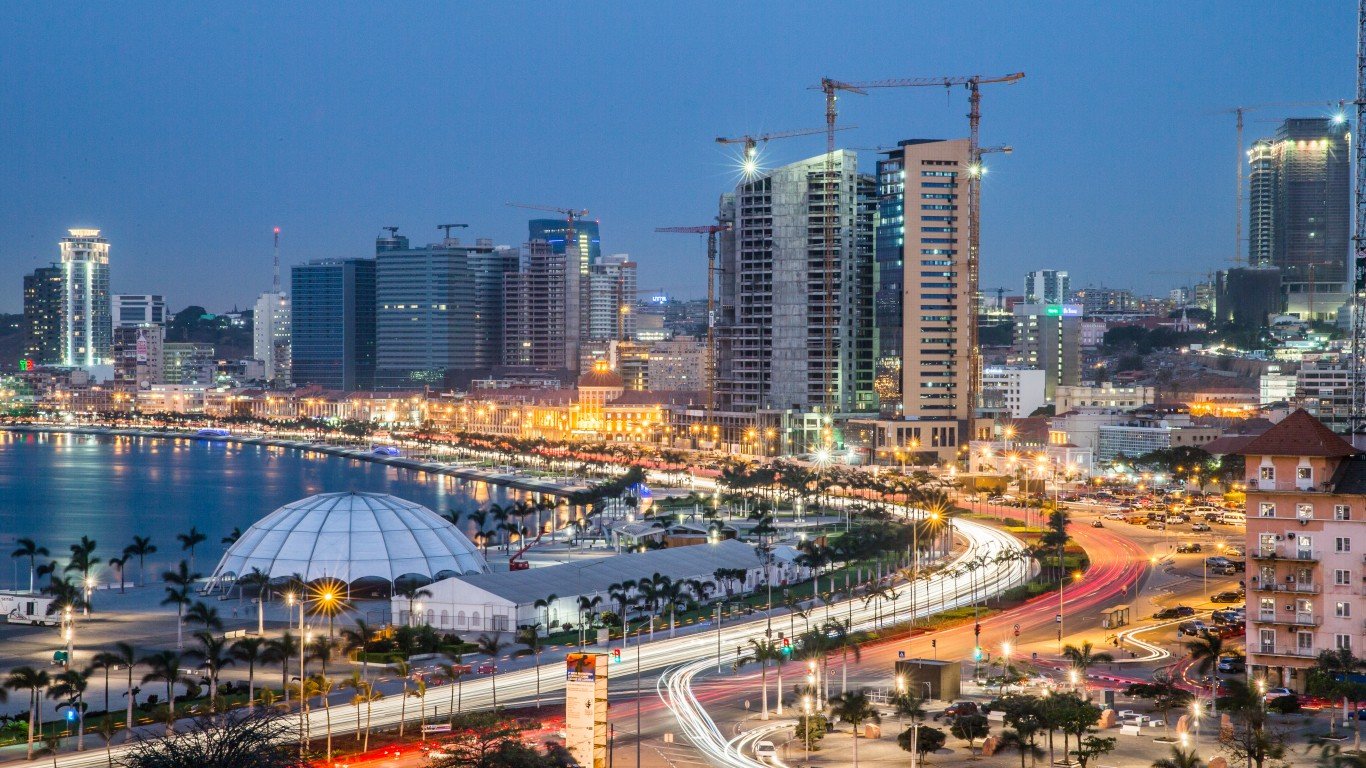
45. Angola
> Population density: 68 people per square mile
> Est. population 2020: 32,866,268 — #44 out of 217 countries
> Land area: 481,353 square miles — #22 out of 217 countries
> Population growth, 2015-2020: 17.9%
Located in southwestern Africa, Angola, which is about half the size of Texas, is a vast but sparsely-populated country. About 67% of the population lives in urban areas. Most of the rural population lives in the highlands.
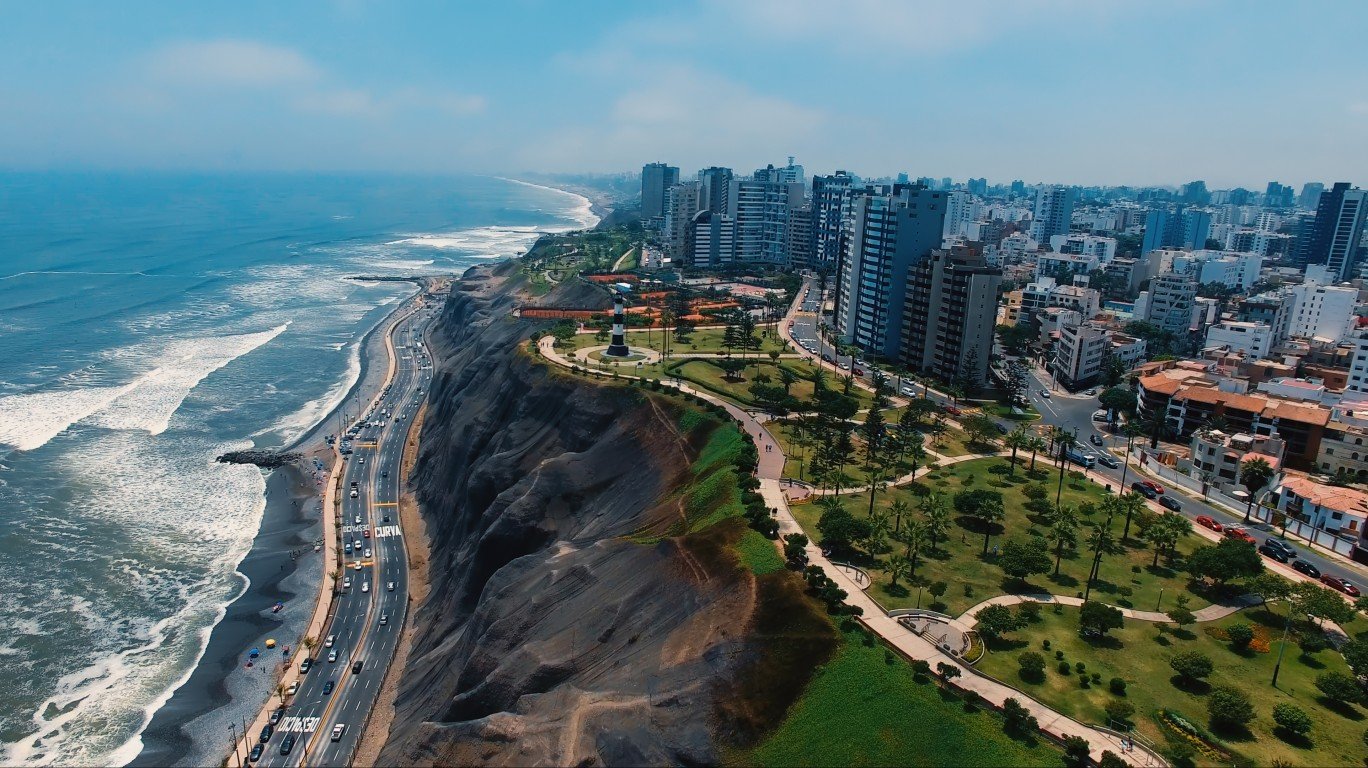
44. Peru
> Population density: 67 people per square mile
> Est. population 2020: 32,971,846 — #43 out of 217 countries
> Land area: 494,211 square miles — #19 out of 217 countries
> Population growth, 2015-2020: 8.2%
Peru is the third largest country in South America, after Brazil and Argentina. More than half of the population lives along the coastal desert, which covers just about 10% of the country. Half of Peru is covered by the Amazon rainforest.
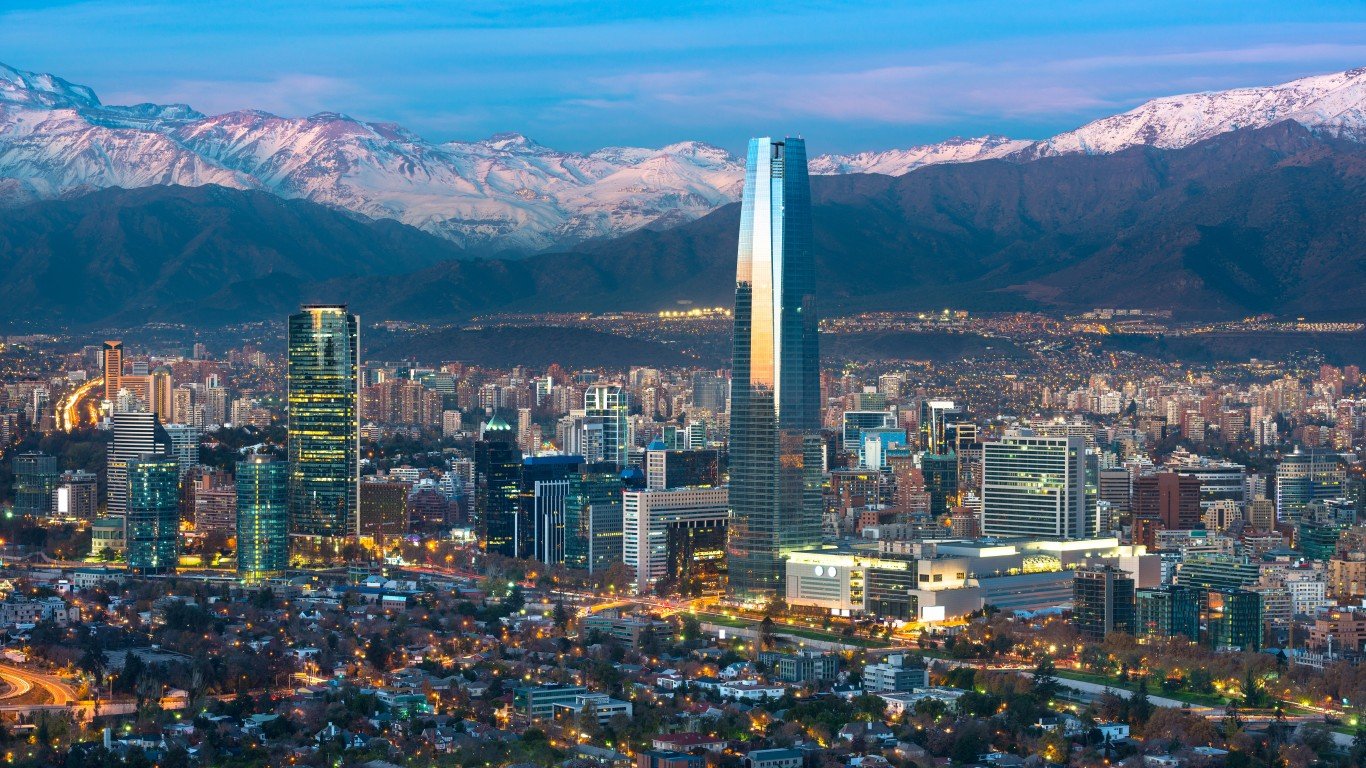
43. Chile
> Population density: 67 people per square mile
> Est. population 2020: 19,116,209 — #62 out of 217 countries
> Land area: 287,079 square miles — #37 out of 217 countries
> Population growth, 2015-2020: 6.4%
A long and narrow country, Chile is located along the western seaboard of South America. A large section of the northern part of the country is an uninhabited desert. Most of the population is concentrated in larger cities in Central Chile, including the capital Santiago.
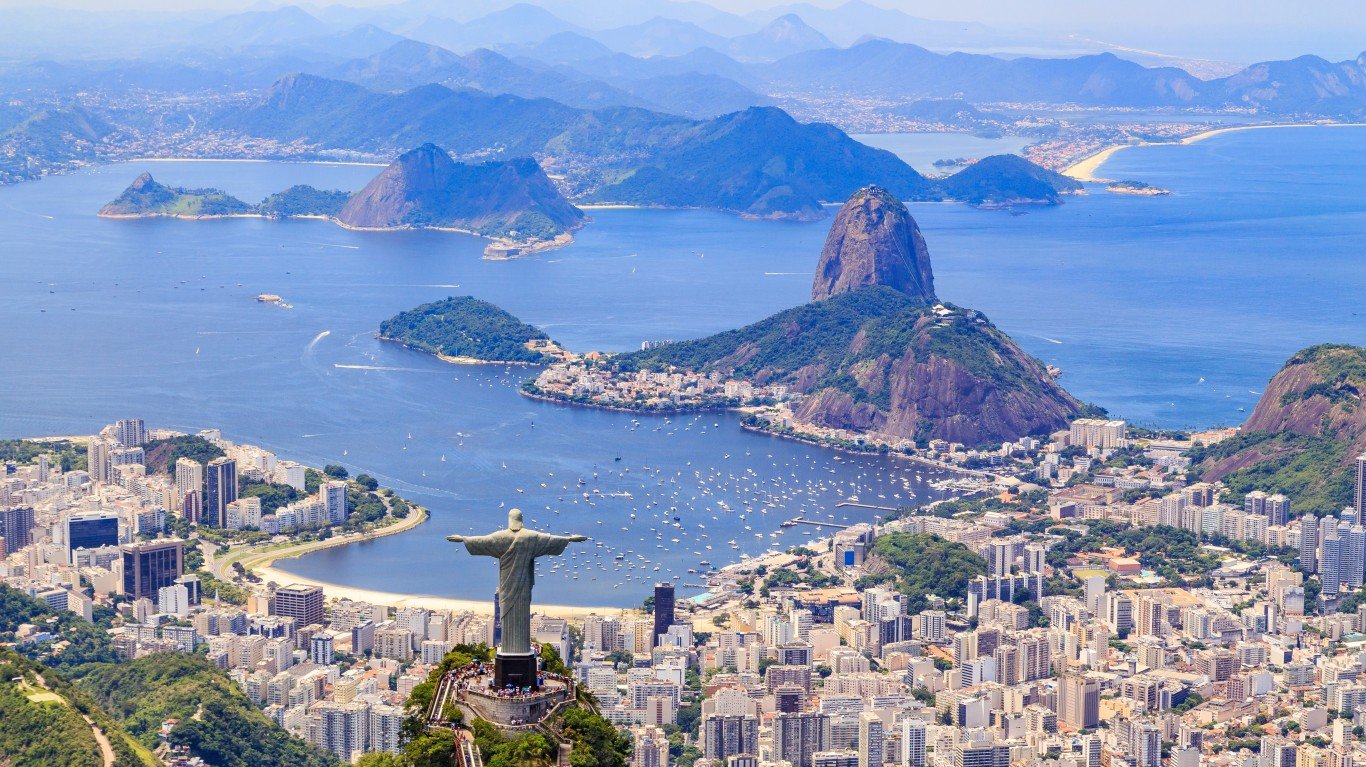
42. Brazil
> Population density: 66 people per square mile
> Est. population 2020: 212,559,409 — #6 out of 217 countries
> Land area: 3,227,095 square miles — #5 out of 217 countries
> Population growth, 2015-2020: 4.0%
At more than 3.2 square miles and over 2012 million people, Brazil is the world’s fifth largest country by total area and sixth most populous. The country makes up about half of South America’s land mass.
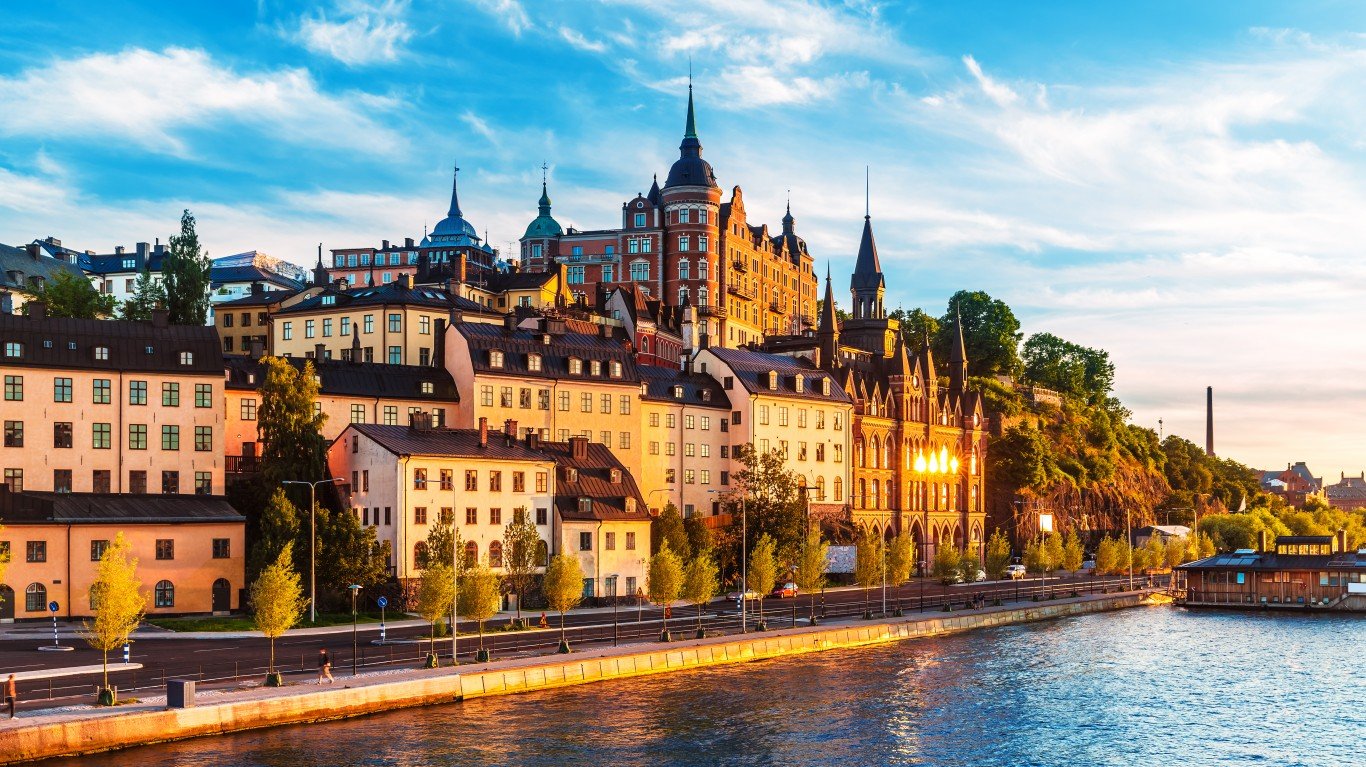
41. Sweden
> Population density: 66 people per square mile
> Est. population 2020: 10,353,442 — #87 out of 217 countries
> Land area: 157,263 square miles — #59 out of 217 countries
> Population growth, 2015-2020: 5.7%
Sweden is known for its mountains, but the mountainous region in the northern part of the country is considerably less populated than Sweden’s southern and central parts. Norrland, which is in the north, covers three-fifths of the country, but the region is largely mountainous and covered in forests.






